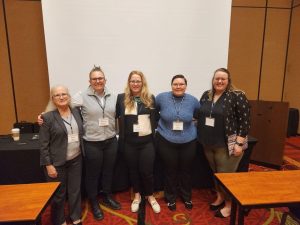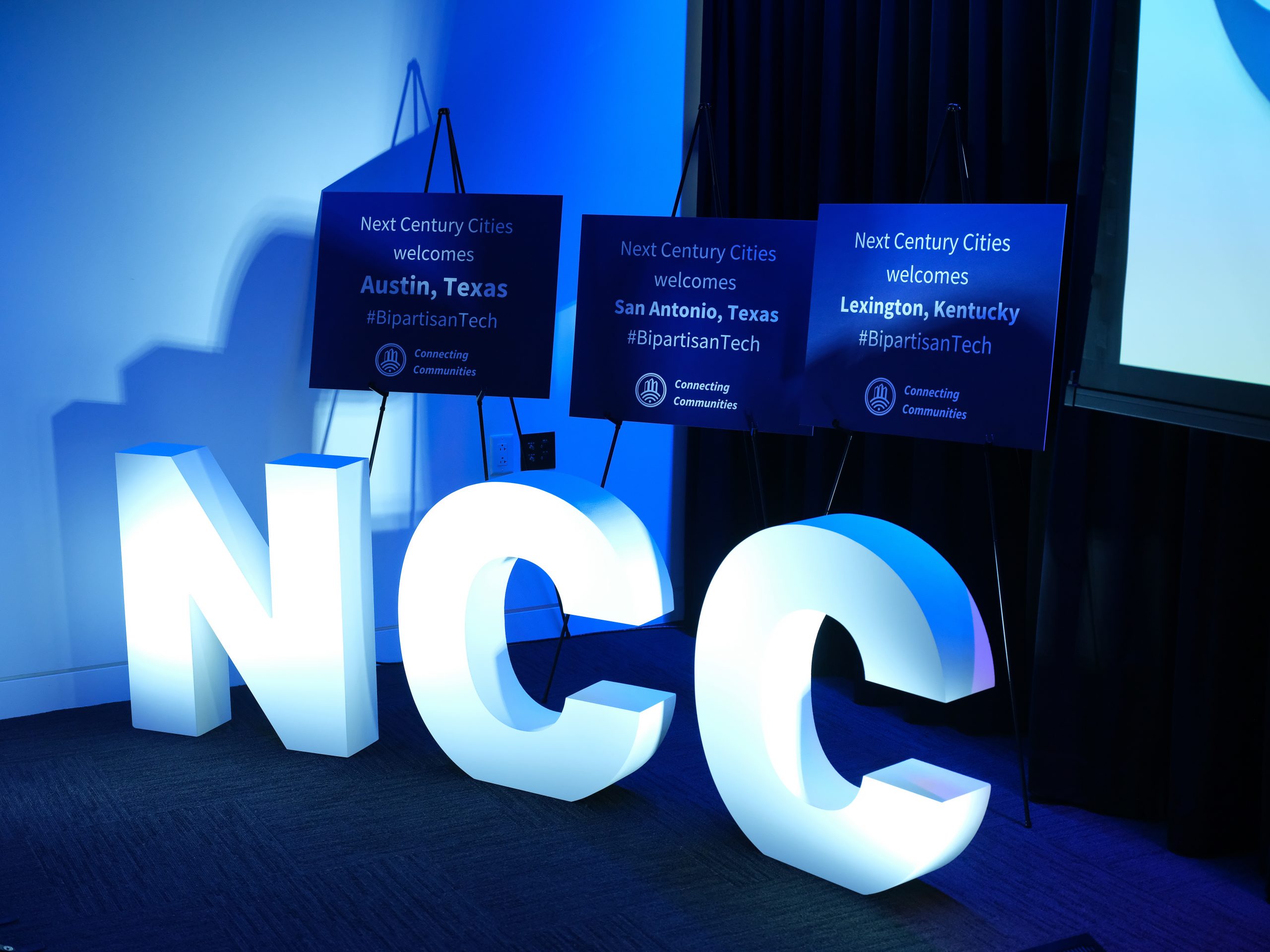
From left to right: Deb Socia, Shannon Millsaps, Kristi Zappie-Ferradino, Corian Zacher, Taylre Beaty
On March 22 and 23rd, 2023, the Tennessee Department of Economic and Community Development, Tennessee Valley Authority, and the U.S. Department of Agriculture partnered on a rural development conference hosted in Murfreesboro, Tennessee. The conference included workshops on a range of topics, including community storytelling, agricultural innovation, and local broadband initiatives.
Corian Zacher, Senior Policy Counsel, spoke on a panel moderated by Deb Socia, President & CEO of the Enterprise Center. The Enterprise Center’s digital inclusion program, Tech Goes Home Chattanooga, partners with libraries, schools, faith-based organizations, community centers, and nonprofits to bring devices, skills, and affordable broadband to communities facing connectivity barriers. Zacher shared examples from NCC’s member communities who have worked through a variety of challenges to ensure that all residents have reliable, affordable broadband. Coalition-building, community-centered planning, and collaborating with state broadband offices were central themes of the discussion.
Shannon Millsaps, Senior Director, Transportation & Infrastructure for THRIVE, a greater Chattanooga regional partnership with a footprint across 16 counties in three states, discussed key barriers to local coalition-building and offered suggestions for overcoming them. Thrive’s Regional Broadband Alliance supports community engagement around broadband. In partnership with the Sewanee Summer Data lab, Thrive released a regional broadband map using FCC and Microsoft data. As part of the Close to Home series, Thrive profiled the profound impact that connectivity gaps have on residents in Polk County and Rhea County, Tennessee; Fort Payne, Alabama; and Walker County, Georgia. One interviewee, a sustainable farmer in Rhea County, explains that he drives to a coffee shop over 20 minutes away to take client meetings on public WiFi.
Kristi Zappie-Ferradino, Director of Programs & Initiatives for the National Digital Inclusion Alliance (NDIA), shared tips from the Digital Navigator Model, which is a framework developed in partnership with Rural LISC and the Salt Lake City Public Library to help communities across the US. Panelists also discussed model programs like E2D in Charlotte, North Carolina; TSC Get Digital in Topeka, Kansas; and Tech Goes Home in Boston, Massachusetts and Chattanooga, Tennessee. Programs like these use community-driven approaches to connect residents with devices, affordable, high-quality broadband access, and digital skills.
As states begin the community engagement process for Broadband Equity, Access, and Deployment and Digital Equity funding, local leaders across the U.S. will have opportunities to participate in convenings in their region. Following Next Century Cities’ monthly bulletin and newsletter is a great way to stay informed about upcoming events across the country. 
Additional Resources:
- What do a hospital, a nonprofit organization, and a local government have in common? They’re working together to improve health outcomes for residents in Chattanooga’s Orchard Knob neighborhood.
- Disconnected Students Cannot Wait For Emergencies to Give Teachers the Support They Need

